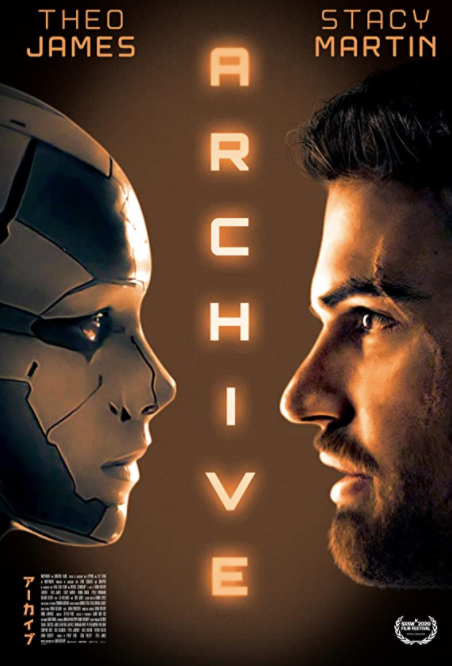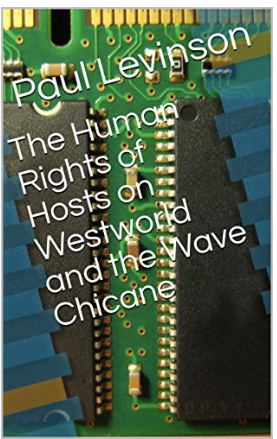
They've been at least three excellent, sometimes outstanding, TV series that probe the philosophic and emotional complexities of androids in the past few years, Westworld, Humans, and recently Raised by Wolves. But I can't think of an equivalent movie. Or couldn't think of one. Until Archive, which has been streaming on Amazon Prime Video since the summer, but I just got around to seeing earlier tonight,
The set-up we've seen in all manner of science fiction and horror movies in the past century: a bereaved husband, who is a genius in AI or other suitable science, determined to use his genius to bring back his deceased wife. What makes Archive worthy, even great, then, is not in this common set-up. It's its execution.
Theo's the genius who's lost his wife Stacy in a car crash. Fortunately, he got a bit of her self (or mind, soul, personality, take your pick), encoded in some kind of digital drive while she was well and alive --- aka the "archive". Being the genius that he is, and the time about 20 years in our future, Theo is able to build this bit of self into a complete digital persona. Next step is to put her into an android who looks, talks, thinks, feels like Stacy because, in a very real sense, she actually is.
The stage or story is thus set in two important dramatic ways. Theo didn't build and therefore doesn't own the archive technology. So we have corporate conflict. And Theo can't build a new Stacy first crack out of the box. On the way to Stacy, Theo builds an android with the mental age of a young child, and another with the age of a young teenager. The sibling jealousy and rivalry between the teenaged android and the emerging Stacy, along with Theo's patermal discipline and toleration of the teenager are done just right, and would've been worth the price of admission had Archive been shown as intended in theaters.
There are, in effect, two surprises near and at the end of this fine movie. I'll tell you some about the first but not the second, just in case you haven't seen Archive prior to reading this. The "Stacy" that Theo is constructing has a personality at least a little different from the original. Turns out that this new she -- the personality -- was a test-run that Theo got going to make sure the digital entity in the archive could meld well in the bio-digital android he was constructing. But the new "she" is not exactly the same as Stacy. So Theo's plan is to swap Stacy's mind into the android, which would mean the new "she" would cease to exist. The ever-courteous Theo apologizes to the new "she" right before he initiates the transfer and--
Ok, that's where I'll stop in the recounting. I will say that there is an even bigger surprise at the very end, and that's the part I liked least in this otherwise outstanding movie (written and directed by Gavin Rothery, in his feature length debut). Bur see it yourself, and let me know if you agree.



1 comment:
I only just watched the movie today, thanks to your recommendation. I enjoyed it and enjoyed the twist at the end on an emotional and conceptual level. I haven't spent too much time reflecting yet on whether it makes sense. I suspect that much of the rest will seem not to quite fit if I think about it too much. But the experience of watching was enjoyable. I avoided reading your post until I had a chance to see it!
Post a Comment